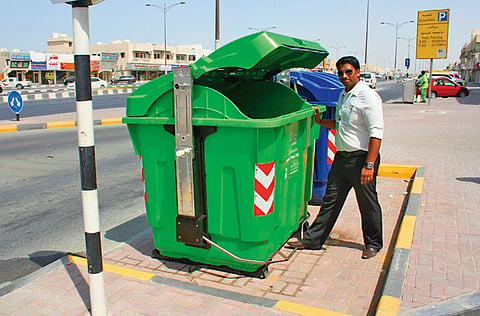Recycle from home
Contribute to global efforts by making recycling an essential part of your lifestyle

While we thrive in a modern metropolis, it’s easy to turn a blind eye to the amount we consume or cast away. The garbage does not disappear once we dump it down the chute; it still needs to be dealt with. Going green takes a lot more than tossing a can or two into a bin marked ‘Recycle’; we have to change the way we live and monitor how much we consume.
Setting an example
"Until the infrastructure, logistics, and manpower is available, we will have to continue bringing recyclables to a designated centre. If we look at other developed countries, some already have a recycling service that is a functioning home collection service, and run by the local authorities for that area.
He adds, "To run a successful and sustained campaign, we would need a group of residents to come together and practice segregation."
Segregating our waste is one of the basic steps to contributing to a more efficient, cleaner and safer environment. Since September 4, 2011, UAE legislation mandates corporate entities to compulsorily segregate their trash or risk being slapped with large fines. It is only a matter of time before residents will be required to follow green codes and recycling initiatives to avoid possible penalties or fines for non-compliance.
Where do we go next?
Modifying single garbage chutes in existing high-rise buildings’ with ‘diverters’ to several basement trash bins costs around Dh9,000 per floor, installing up to three chutes in a new building would cost about Dh11,000. Sharjah’s Hi-Tech Equipments, which provided this cost estimate, believes that the introduction of multiple chutes in residential buildings could make recycling easier for residents. However, if we are to go by Bee’ah’s example, recycling bins near homes and communities across the UAE would be an effective way to get recycling going.
While the collection of recyclables from homes is not a bad option, the most effective solution is to take waste to a recycling collection point independently.
Sign up for the Daily Briefing
Get the latest news and updates straight to your inbox



